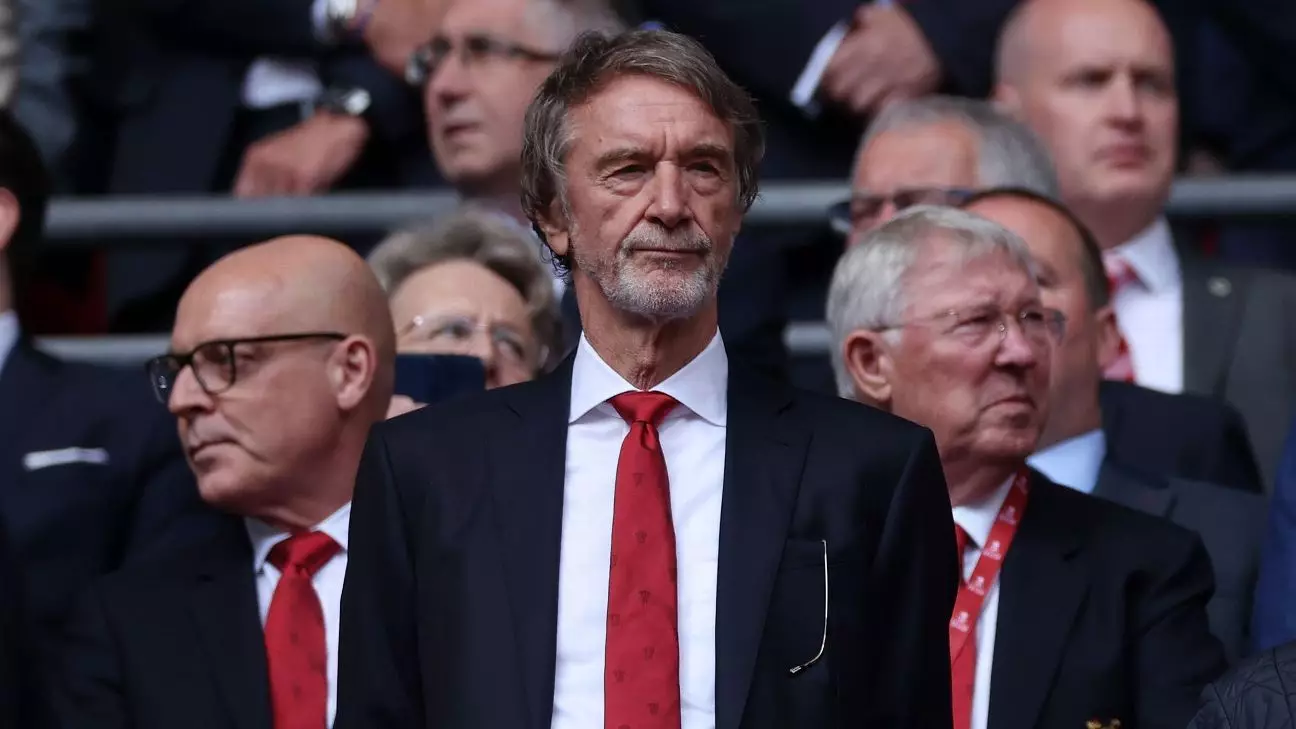Sir Jim Ratcliffe, the newly appointed stakeholder of Manchester United, has acknowledged the significant challenges facing the club. With the acquisition of a 27.7% stake earlier this year, Ratcliffe made it clear his intention to restore Manchester United’s reputation as a powerhouse in English and European football. Yet, his statements reveal a broader issue: the club’s current standing is deeply entrenched in mediocrity. His assessment of the club’s performance as “mediocre” underscores the urgent need for transformative changes. As one of the sport’s most celebrated teams, the Red Devils’ fall from grace has been stark, leading fans and stakeholders alike to ponder the future direction of the organization.
For the club to reclaim its glory, Ratcliffe emphasized the necessity of making “difficult and unpopular decisions.” This honesty is commendable and reflects a core tenet of leadership: acknowledging when drastic measures are needed for the greater good. The departure of manager Erik ten Hag, amid dire performances and the unsettling prospect of achieving an even lesser finish than last season, highlighted the urgent need for action. While the selection of Ruben Amorim as the new manager suggests an ambition to revive the team’s competitive edge, the results thus far indicate that merely swapping managerial positions isn’t enough. The soccer world knows that success is built on more than just transient changes at the helm—it demands holistic reforms in strategy, culture, and player recruitment.
The financial landscape of top-tier football is an inescapable factor in Ferguson’s legacy is being evaluated as changes are made. Ratcliffe’s decision to cut nearly a quarter of the club’s workforce last summer illustrates the harsher realities of managing a colossal institution like Manchester United. This move was framed as a necessary step to free up resources directed toward enhancing the team’s performance on the pitch. However, the reality is that drastic job cuts often lead to discontent, create a challenging workplace culture, and, ultimately, could jeopardize the club’s image in the eyes of both fans and potential talent. The absence of Fergusson as an ambassador since his retirement after 27 years complicates things further, signaling a departure from the traditions and values that built the club’s brand.
With a rich history and a formidable fan base, Manchester United stands at a crossroads. Successfully navigating the transition from a period of mediocrity to renewed excellence demands not only tactical shifts on the pitch but also a reimagining of the club’s identity. Ratcliffe’s strategic vision must involve revitalizing player acquisitions, instilling a winning mentality, and rekindling the passionate culture that once epitomized the club in its heyday.
Ultimately, the restoration of Manchester United’s dominance will not come easily. The path to reclaiming its status as an elite football institution requires informed and courageous decision-making. As Ratcliffe embarks on this ambitious journey, the hope remains that these challenges will catalyze a revitalization, bringing Manchester United back to where the club truly belongs.

